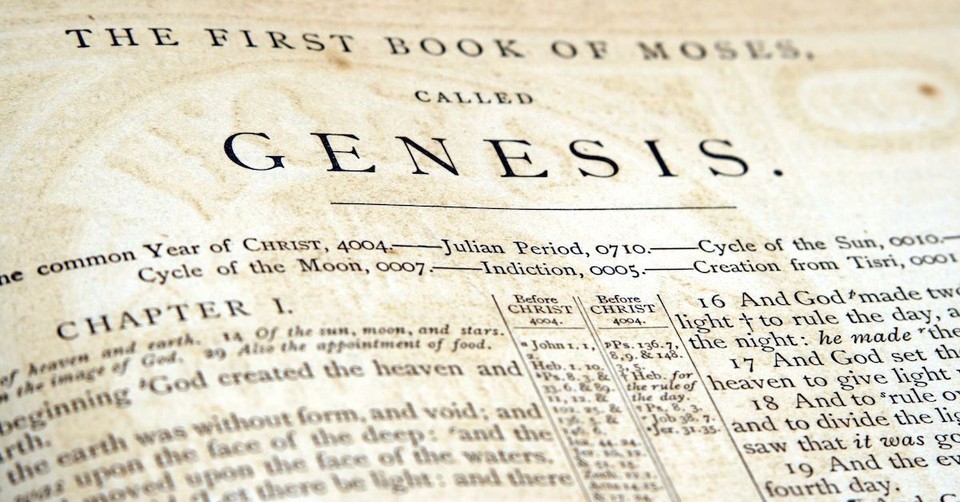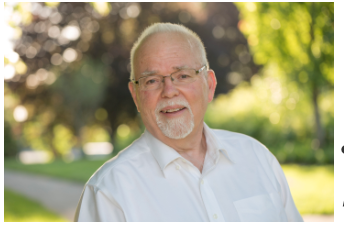What Christians Should Know about the Pentateuch

Christians are theological and cultural descendants of the early Jews, who existed from the time of the first patriarch—Abraham—whose descendants became the People Israel. In time, among the descendants of the People Israel there arrived on earth the one promised in Scripture, that is, Jesus the Christ, the Messiah.
Therefore, it is important for Christians today to understand the history of those many years and to understand the complex interaction between God and His chosen people, the People Israel. This interaction softened some Jews and hardened others while leading ultimately to the salvific dynamism extant today between God and believing Christians.
Believing Christians need to know about those years between Abraham and Jesus. The greater their knowledge, the richer their understanding of their redemptive heritage. In my view, it is unfortunate and counter-productive that some new Christians are advised today to avoid exploring Old Testament books in their fullness (except Proverbs and Psalms). Of course, they should thoroughly explore the New Testament, and even do that first, but I believe this anti-Old Testament advice is a supersessionist error that weakens a new Christian’s understanding of Christ Himself, of the Trinity, and of Their relationship, rather than strengthens it.
What Is the Pentateuch?
The Greek word Pentateuch (“five books”) refers to the first five books of the Bible, collectively to Genesis, Exodus, Leviticus, Numbers, and Deuteronomy. To a Jew, these five books are also known collectively as Torah, or The Torah. Traditionally, it is understood that the Pentateuch was written by Moses, except for the last chapter of Deuteronomy, chapter 34, which describes Moses’ death and burial and also describes the handing over of Jewish leadership to Joshua.
What Is the Content of the Pentateuch?
The content of the Pentateuch is our Jewish background and also the beginning of our Christian story. Today, when families get together for a holiday, often they sit around the table or around the fire and they tell—and retell—their story. This is particularly the case when a new member of the family—a new husband or wife, for example—is brought into the family for the first time. The new member needs to hear and to absorb the family’s story, going back through generations.
This is who we ARE. And for our story to be true, our story must contain the raw as well as the sweet.
Genesis
God creates the physical world and all living inhabitants in six days, including Adam and Eve. Sin is brought into Eden by Satan, who is responsible for the Fall. The patriarchs and the matriarchs are introduced. God reveals that He can become fed-up with human evil, and He destroys most humans and other living creatures during the flood. Then, later, God promises His chosen people that they will inhabit Canaan. For a time, they do inhabit Canaan, but later they suffer from an extended famine, so they move to Egypt where food is available.
Exodus
The People Israel exist in Egypt as slaves during many generations and their numbers mightily increase. Moses, a Jew, is born among them. To preserve him from being executed by royal decree, Moses is adopted by the princess of Egypt and raised to manhood as an Egyptian prince. Having murdered an Egyptian slave master who was harming a Jew, Moses escapes into the Median desert, becomes a shepherd, and marries. At the foot of Mount Sinai, Moses encounters God in the burning bush. By God, Moses is sent back into Egypt to tell Pharaoh to “Set My people free.” Eventually, six hundred thousand enslaved men escape from Egypt, along with their wives and children, by following Moses. They cross the Red Sea and camp at the foot of Mount Sinai. Moses climbs Mount Sinai and meets with God again. God covenants with the People Israel. He will guide and protect them and keep them from harm if they will have no other gods before Him. God gives Moses the Ten Commandments (in Hebrew their title is Asceret Hadevarim—or “Ten Utterances”). Moses brings the tablets down from the mountain to show the Israelites. However, in the meantime, while Moses was away, the People Israel—who are fractious and impatient and self-centered—have built for themselves a golden calf to worship instead of God. Furious, Moses smashes the tablets and climbs back up the mountain to carve a new set of God’s “Utterances.” The rest of Exodus describes the building of the Tabernacle, which is where the new tablets (and thus the dicta of God Himself) are to be housed.
Leviticus
This book is about how the People Israel are to use the Tabernacle which they built, and it focuses on the laws of holy living. There may be only ten Commandments—that’sone thing—but of the laws of holy living—there are 613! In Hebrew, they’re called the mitzvoth. The laws are specific, urgent, plain, covenantal—not to be dodged. Among other definitions and actions, they cover clean versus unclean animals, ritual slaughter, sacrificial practices, cooking instructions, proper and improper use of fire, Shabbat practices, purification from human defilement, human relationships, sexual practices to enjoy or to revile, and so on. Leviticus is about rewards and punishments.
Numbers
Numbers takes up the story again by following Israel’s wandering in the desert, as God’s Chosen stomp onward toward the land formerly promised to them by God, toward Canaan. However, due to further rebellions against God and repeated times of unbelief, the Israelites are condemned to wander for forty more years before they arrive.
Deuteronomy
Having arrived at the border of Canaan, across the plain from Jericho, this book mostly contains speeches by Moses in which he warns the recalcitrant People Israel to stop wavering in their faith about God. God has performed His side of the covenant. Israel needs to do the same. It needs to relinquish its taste for idolatry. It needs to refrain from imitating the worship practices of the Canaanites. Then Moses is taken by God up to the top of Mount Pisgah. From there, he is allowed to see the Promised Land, although—because of his own sins—Moses is not allowed to enter there. And then Moses dies.
The Pentateuch is not just our back-story, it is our way back-story. Jews—and Christians, too—this is where we come from. This is our ancestry.
But What Does All This Mean for Us Christians Today?
Isn’t Jesus All About Love? Do you notice something fascinating about our family history? Our family has been around for at least 3,200 years since the Exodus. Really, we’ve been around longer than that—since the time of Abraham—but let’s say 3,200 years to keep it simple.
Is our way back-story all about love? No. Our story then and now is about being challenged to live up to the requirements of our covenantal God, since He has accomplished what He set out to do for us. First, He created the universe, including us. Second, He gave us the rules. Third, He chided or punished us when we broke the rules. Later, He did what He had promised all the way back in Genesis 3:15, that He would send the One who would bruise the evil serpent’s head—that is, He would send His Son, Jesus the Christ.
What was it like to travel with the People Israel across the desert? Were we all determined, forceful, resolute, unswerving, intent and set in stone in our absoluteness to follow the mitzvoth, all 613 of them? Or, back then, were we tempted to argue and to complain?
Some of our ancestors felt it might be more comfortable to worship a god like the Canaanite god, Ba’al. After all, worship of Ba’al might be more congenial for us than worshipping our God because Ba’al’s wrath could be assuaged by commonplace activities (however distasteful) such as child sacrifices or temple orgies or slicing ourselves up with knives and spears.
But doing that might be better, by far, than bowing before the strictness of the Lord God Almighty, the Creator of the Universe, before Yahweh.
TODAY, Are We Tempted to Argue and to Complain?
Aren’t some of us tempted sometimes to think, "Really, who can possibly follow 613 little-bitty laws, or who would want to follow them, especially since they’re biblical and old fashioned?"
Our ancestors back in the desert were impatient. They were tired of God’s minutiae—and just plain tired, too, of walking and of dragging along all those heavy parts of the Tabernacle. They were pleased that God performed His part of the covenant, but they wished God would be less demanding. Some of them even longed backward, for their formerly settled lives and steady diets as slaves back in Egypt.
TODAY, Christians React in the Same Ways
Jesus is one element of the Trinity. It’s the Trinity’s love we Christians must understand.
"God so loved the world that He gave His only Son, that whoever believes in Him should not perish but have eternal life." (John 3:16 ESV)
That variety of Trinitarian love—the very core variety of love at the center of Christianity as a faith—that variety of love allowed for the condemnation of Jesus, for His grisly torture, and even for Jesus’ humiliating and painful death: God’s Own Son!
God allowed even this because He desired so strongly to provide us Jews, gentiles, and Christians with personal salvation and eternal life. That’s the Trinitarian love that is at the heart both of the Pentateuch and of the love-oriented passages of Jesus’ ministry here on earth.
The Two Scales—Christians Must Understand These
The 613 mitzvoth are laws. They are at one level, at the scale of daily human events. Why were they needed? Because Satan brought evil into the world. Are they needed still, since Jesus has come? Yes, they are. Until the final destruction of Satan, evil will continue to exist in the world. Once Christians are saved, they lose their urgency to sin, but they still keep sinning.
Our family has been tempted by sin during our long, long haul. We will continue to be tempted by sin for however long our long, long haul continues to last. Life has changed during the past 3,200 years. Consequently, some laws are not practical to follow today. But our awareness of those laws still provides depth and richness to our understanding of the relationship covenanted between God and His people, both Jews and Christians.
But the TEN COMMANDMENTS—they are scaled differently. They are FOUNDATIONAL. They are not litigational. They do not time out. Their language is high drama—Thou Shall! Thou Shall Not! They reverberate with thunder and lightning and with the crack of rocks and with the awesome wind of the Creator of the Universe Himself. There are four statements of who He is, telling us how we shall relate to Him. There are six basics of decent human society, telling us how we shall relate to one another.
This is where our redemption comes from. This is the story…of the power…of the Almighty…to save…those whom He loves. This is the single blazing fire by which, as sinners, we humans can be redeemed, and we are redeemed. It is orchestrated by the intentionality of Yahweh, by the intervening work of the Holy Spirit, and by the sacrifice of the Son of God Himself, the Messiah Jesus the Christ!
Verily, we believe!
Photo credit: ©GettyImages/RichoFan

Originally published February 26, 2019.







